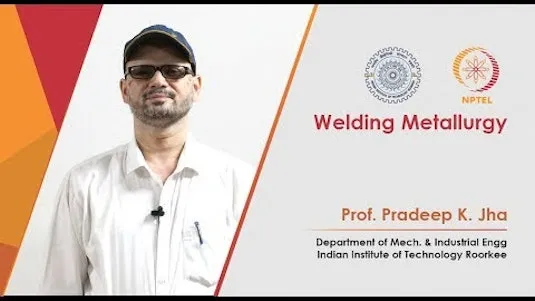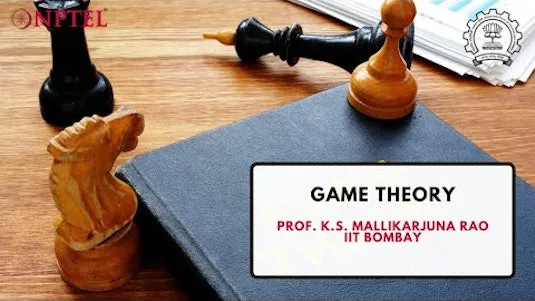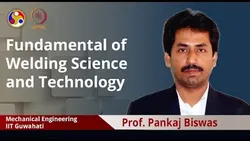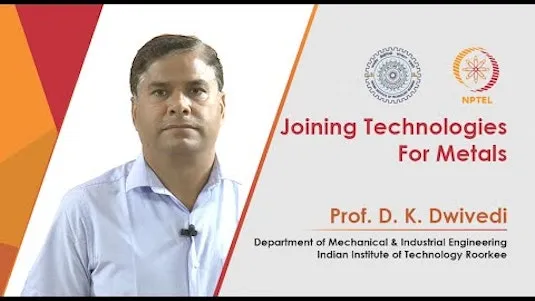
Welding Metallurgy 
This course provides an in-depth understanding of welding metallurgy and solidification. It covers topics such as heat transfer, heat treatment processes, strengthening mechanisms, and more. It is designed for engineering graduates and professionals in the welding industry. Prerequisites include an introduction to welding processes and materials science. Industry support is provided by manufacturing industries such as SAIL and BHEL. This course is an ideal way to gain the skills and knowledge needed to excel in welding. ▼
ADVERTISEMENT
Course Feature
![]() Cost:
Cost:
Free
![]() Provider:
Provider:
Swayam
![]() Certificate:
Certificate:
Paid Certification
![]() Language:
Language:
English
![]() Start Date:
Start Date:
22nd Jan, 2023
Course Overview
❗The content presented here is sourced directly from Swayam platform. For comprehensive course details, including enrollment information, simply click on the 'Go to class' link on our website.
Updated in [May 25th, 2023]
Welding Metallurgy is a course designed to provide students with an understanding of the metallurgy and solidification of weldments. The course will cover topics such as weld metal solidification, heat transfer, heat treatment processes, and strengthening mechanisms. It is intended to be beneficial to engineering graduates and professionals working in the welding industry. Prerequisites for the course include an introduction to welding processes and materials science. The course is supported by manufacturing industries such as SAIL and BHEL.
[Applications]
Those who have taken this course can apply their knowledge to the welding industry by understanding the metallurgical aspects of weldments and the science behind welding phenomena. They can also use their knowledge to develop new welding processes and techniques, as well as to improve existing ones. Additionally, they can use their knowledge to develop heat treatment processes and strengthening mechanisms for weldments. Furthermore, they can use their knowledge to provide technical support to manufacturing industries such as SAIL and BHEL.
[Career Paths]
1. Welding Engineer: Welding Engineers are responsible for designing, developing, and testing welding processes and equipment. They also oversee the production of welded components and ensure that the welds meet the required standards. They must have a strong understanding of metallurgy and welding processes, as well as the ability to troubleshoot welding problems. The demand for Welding Engineers is expected to grow as the manufacturing industry continues to expand.
2. Welding Inspector: Welding Inspectors are responsible for ensuring that welds meet the required standards. They inspect welds for defects, such as cracks, porosity, and other imperfections. They must have a strong understanding of metallurgy and welding processes, as well as the ability to interpret welding codes and standards. The demand for Welding Inspectors is expected to grow as the manufacturing industry continues to expand.
3. Welding Technician: Welding Technicians are responsible for setting up and operating welding equipment. They must have a strong understanding of metallurgy and welding processes, as well as the ability to troubleshoot welding problems. The demand for Welding Technicians is expected to grow as the manufacturing industry continues to expand.
4. Welding Educator: Welding Educators are responsible for teaching welding courses at the college or university level. They must have a strong understanding of metallurgy and welding processes, as well as the ability to teach welding concepts to students. The demand for Welding Educators is expected to grow as the manufacturing industry continues to expand.
[Education Paths]
1. Bachelor of Science in Welding Metallurgy: This degree program provides students with a comprehensive understanding of the metallurgical aspects of welding, including heat transfer, heat treatment processes, and strengthening mechanisms. Students will also gain an understanding of the science behind welding phenomena and the importance of weld metal solidification. This degree program is ideal for engineering graduates and professionals working in the welding industry.
2. Master of Science in Welding Metallurgy: This degree program provides students with an advanced understanding of the metallurgical aspects of welding, including heat transfer, heat treatment processes, and strengthening mechanisms. Students will also gain an understanding of the science behind welding phenomena and the importance of weld metal solidification. This degree program is ideal for engineering graduates and professionals working in the welding industry who wish to further their knowledge and skills.
3. Doctor of Philosophy in Welding Metallurgy: This degree program provides students with an in-depth understanding of the metallurgical aspects of welding, including heat transfer, heat treatment processes, and strengthening mechanisms. Students will also gain an understanding of the science behind welding phenomena and the importance of weld metal solidification. This degree program is ideal for engineering graduates and professionals working in the welding industry who wish to pursue a career in research and development.
4. Certificate in Welding Metallurgy: This certificate program provides students with a basic understanding of the metallurgical aspects of welding, including heat transfer, heat treatment processes, and strengthening mechanisms. Students will also gain an understanding of the science behind welding phenomena and the importance of weld metal solidification. This certificate program is ideal for those who wish to gain a basic understanding of welding metallurgy and its applications.
Course Provider

Provider Swayam's Stats at AZClass
Discussion and Reviews
0.0 (Based on 0 reviews)
Explore Similar Online Courses

Game Theory

PMP Certification: 35+ PDU Formal PMP Exam Prep_New PMP 2023

Python for Informatics: Exploring Information

Social Network Analysis

Introduction to Systematic Review and Meta-Analysis

The Analytics Edge

DCO042 - Python For Informatics

Causal Diagrams: Draw Your Assumptions Before Your Conclusions

Whole genome sequencing of bacterial genomes - tools and applications

Welding Safety

Fundamental of Welding Science and Technology

Joining Technologies For Metals
 Related Categories
Related Categories
 Popular Providers
Popular Providers
Quiz
 Submitted Sucessfully
Submitted Sucessfully
1. What is the intended audience of the course?
2. What are the prerequisites for the course?
3. Which industries are supported by the course?
4. What is the main focus of the course?
Correct Answer: Understanding the metallurgy and solidification of weldments


Start your review of Welding Metallurgy